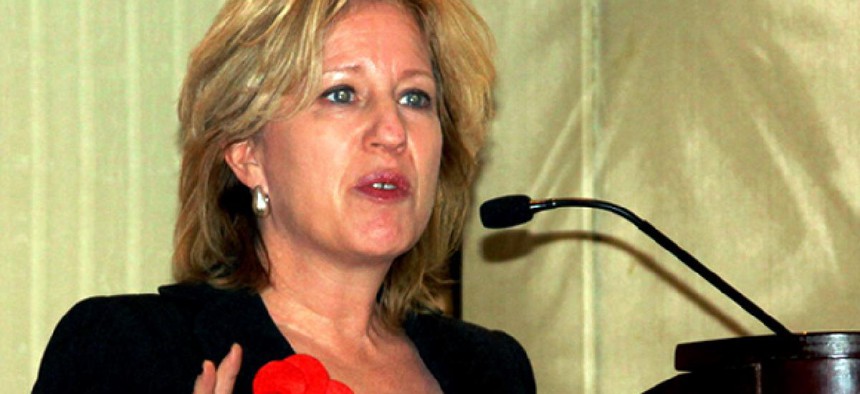
Acting National Nuclear Security Administration chief Neile Miller NNSA
Decision on NNSA Furloughs Likely Within First Month of Sequester
The semiautonomous Energy Department agency is “working to avoid or minimize furloughs of NNSA’s federal work force to the extent possible,” according to officials.
Acting National Nuclear Security Administration chief Neile Miller said on Thursday it might take one month before it becomes clear whether agency employees will have to be furloughed as a result of the federal budget sequester expected to take effect on Friday.
In a Thursday memo to NNSA employees, Miller noted that her “senior leadership team has been working very hard to implement cost-cutting measures across the enterprise in order to mitigate the effects of sequester, should it occur. In addition we are working closely with our lab and plant partners to assess potential impacts on those operations.”
However, while officials at NNSA headquarters “are doing everything we can to protect our work force and our critical mission, there remains the possibility of furloughs of both federal and contractor personnel may be required as a result of factors beyond our control,” she wrote.
Miller’s memo states that the semiautonomous Energy Department agency is “working to avoid or minimize furloughs of NNSA’s federal work force to the extent possible.” If furloughs become necessary, the agency would notify employees “as soon as that becomes a certainty” and at least 30 days in advance of action, pursuant to federal law.
The 2011 Budget Control Act requires the federal government to cut $85 billion in spending for the remainder of this fiscal year, which ends on Sept. 30. Congress and the White House were not expected to agree on an alternative plan ahead of the Friday deadline.
Miller told Global Security Newswire that NNSA officials should know more about possible furloughs of agency staff “within a month.” She said it would be up to private companies to determine when contract personnel might be forced to take unpaid time off from work.
B&W, the contractor at the Y-12 National Security Complex in Tennessee, plans to spread potential furlough days for nonessential employees between April and October in an effort to minimize the impact on workers and disruptions at the facility, the Knoxville News Sentinel reported on Friday. President Chuck Spencer said the company would submit its plan to NNSA officials next week.
“From an operational standpoint, our first priority will be to maintain the systems at the site that allow us to operate safely and securely,” Spencer said. “Our next priority will be to accomplish as much work as we can under a reduced schedule. Some work that can be moved into next year would be rescheduled, and some discretionary activities would be eliminated.”
During a Feb. 14 hearing on Capitol Hill, Miller provided some insight into how sequestration would impact NNSA programs. She said certain efforts to extend the lives of aging nuclear warheads would continue, while others would be delayed.
“We will ensure that that there is no impact on the continuing life extension of the W-76 warhead, we must deliver that for national security reasons, but there will be delays to the B-61 life extension schedule and the W-88 Alt [370] schedule,” Miller said. The W-76 and W-78 warheads are carried by submarine-launched ballistic missiles while the B-61 gravity bomb is carried by a variety of military aircraft.
“Reductions across the board will include reductions to surveillance of the stockpile,” Miller said at the time. Safety upgrades being made to Plutonium Facility 4 at the Los Alamos National Laboratory in New Mexico due to concerns about seismic activity in the area will be delayed, she said.
NEXT STORY: Fed Stress Doesn’t Faze Sequestration Supporters







